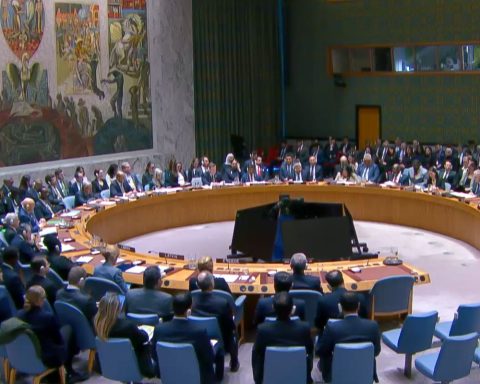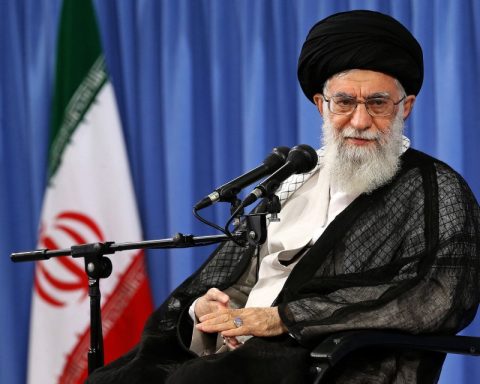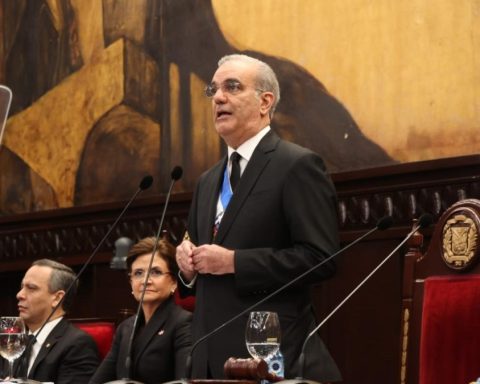The appreciation and promotion of culture as a central piece in the construction of national identity are among the priorities of the government of President-elect Luiz Inácio Lula da Silva, who takes office next Sunday (1st). For this, according to the final report of the Transition Cabinet, the reconstruction of the Ministry of Culture (MinC), extinct in 2019, is essential.
The recreation of the MinC is already included in the organization chart of the new government, with singer and songwriter Margareth Menezes as minister and Márcio Tavares as executive secretary.
During the government of Michel Temer (2016-2018), the Ministry of Culture was merged with that of Education, but protests caused the portfolio to be recreated. In 2019, in the first year of the Jair Bolsonaro administration (2019-2022), it was extinguished again.
In the evaluation of the Technical Group (GT) of Culture of the Transition Cabinet, the area was one of the main targets of “dismantling” in the Bolsonaro government, losing resources and positions. When announcing the confirmation of Margareth Menezes in the ministry, on December 13, the president-elect, Luiz Inácio Lula da Silva, said that he would honor the commitment to rebuild and strengthen the cultural sector.
With a career spanning more than 40 years, the singer was a member of the culture working group at the Cabinet of Transition and is one of the main names in Bahian music and Salvador’s carnival. Her work also includes leading initiatives to strengthen Afro blocks and Bahian pop music and founding the Fábrica Cultural association, which seeks to boost business and promote culture in the Itapagipe Peninsula, in Salvador.
After confirming that she would accept the position of minister, Margareth Menezes announced Márcio Tavares, executive coordinator of the Culture WG in the Transition Cabinet, as the future executive secretary of the ministry. Tavares is the national secretary of Culture for the Workers’ Party and coordinated the Lula-Alckmin ticket’s government plan for the sector.
In addition to the two, the Culture WG had the participation of names such as filmmaker Kleber Mendonça Filho, actress Lucélia Santos, former minister of culture Juca Ferreira, former director-president of the National Film Agency, Manoel Rangel, gospel singer Kleber Lucas, poet Antônio Marinho, federal deputies Áurea Carolina (PSOL-MG), Benedita da Silva (PT-RJ) and Jandira Feghali (PCdoB-RJ) and federal deputies Marcelo Calero (PSD-RJ) and Túlio Gadelha (Rede-PE).
Last years
During the Bolsonaro government, the body that took over from the MinC was the Special Secretariat for Culture, which had six holders over the four years. Among them, the playwright Roberto Alvim, who was fired after a video published on social networks with references to a Nazi speech by Joseph Goebbels; actress Regina Duarte, who left the post for reporting “missing the family”, according to Bolsonaro; and actor Mário Frias, who remained in the post from June 2020 to March 2022 and was elected federal deputy for São Paulo. The secretariat started the government linked to the Ministry of Citizenship, but was transferred to the Ministry of Tourism in 2019.
Scenario
According to the final report of the transitional cabinet, there has been an 85% loss in the budget for the direct administration of culture since 2016, and 38% for that of the indirect administration. The National Culture Fund (FNC), the sector’s main government funding mechanism, had its budget reduced by 91% during this period.
During the Bolsonaro government, the document points to a 20-year setback in budget execution linked to culture, with a reduction in size that led the Special Secretariat for Culture to have a third of the positions that existed in the MinC in 2016.
“In addition to the drastic reduction in size, the Secretariat turned its back on the cultural area, canceling public notices, extinguishing policies, discontinuing projects, systematically reducing its budget, persecuting public servants, scrapping institutions and publishing authoritarian normative acts that violate rights and cultural diversity”, says the final transition report.
The scenario of reduced budgetary support for culture was aggravated by the covid-19 pandemic, which made the sector’s revenue close to zero, threatening 300 thousand companies and 5.5 million workers linked to the area, which accounted for up to 2.7% of Brazil’s Gross Domestic Product (GDP) in 2019.
Added to these difficulties is the reduction in social participation, adds the report, which describes that, of the 25 collegiate bodies associated with cultural policies, 10 have been extinguished, three are paralyzed or awaiting composition, 1 is active, but with problems in formalization and composition, and only 11 (41%) are in operation.
“It is undeniable the role that Culture will have during the new government, either as a fundamental area of support and encouragement to the diversity of cultural manifestations of the Brazilian people; or as a means to provide the widest access to cultural goods and services; or, finally, , as an indispensable instrument for the promotion of cultural production and the promotion of an economy of culture, as part of the strategy for resuming the country’s sustainable development”, concludes the report.
Proposals
In addition to recreating the ministry, the new government should review acts of the previous management in the cultural area. The transitional cabinet recommends repealing Decree 10,755 of 2021, which regulates the promotion of cultural actions via a federal tax incentive mechanism. The proposal is to replace it with a new regulation.
The final report also suggests revising a series of ordinances and normative instructions, which include rules for rendering accounts and evaluating the results of cultural projects financed through the Fiscal Incentive mechanism of the National Program to Support Culture (Pronac). Among the measures that should be reviewed is the Ordinance SEFIC/SECULT/MTUR 604/2021, which prohibits projects financed via the Rouanet Law from using neutral language.
Minister Margareth Menezes celebrated on her Twitter account, on the 26th, the vote in the National Congress that guaranteed budgetary resources for the reconstruction of the Ministry of Culture and to make the Laws Paulo Gustavo and Aldir Blanc 2 viable.
“In 2023, culture and the arts will have a guaranteed budget and will rely on the recreation of the MinC, with an adequate structure to once again boost the sector with all its diversity”, celebrated the minister. “It truly is the beginning of a new cycle for the culture of this country! Victory for culture, victory for Brazil!”
The Paulo Gustavo Law provides for the transfer of R$ 3.8 billion for emergency actions in the cultural sector throughout the country, which will come from the financial surplus of the National Culture Fund. The Aldir Blanc Law 2 provided for annual transfers of R$ 3 billion from the Union to states and municipalities for actions in the cultural sector for five years. The two laws were vetoed by President Jair Bolsonaro, but the vetoes were overturned by the National Congress.

















